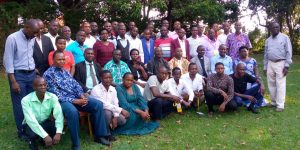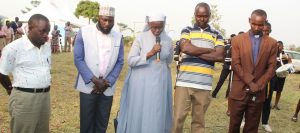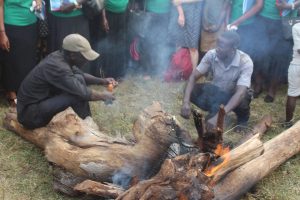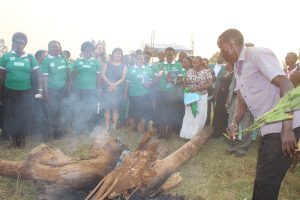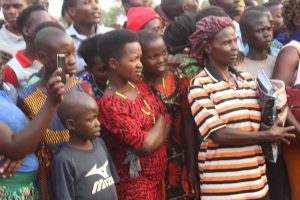Freedom of religion and belief (FoRB) is a human right protected under the Universal Declaration of Human rights (UDH), Internal Covenant on Civil and Political Rights (ICCPR) among other instruments. Over the years many Countries have continued to recognize this right although it has been faced by a myriad of challenges causing inter faith and intra faith tensions. As a human right, FoRB, can be leveraged to address socio-economic and political challenges in communities and enhance the realization of other rights.
JISRA a five-year interfaith programme, that is implemented in seven countries namely, Kenya, Uganda, Mali, Ethiopia, Indonesia and Iraq and Nigeria with the support from the Dutch Ministry of Foreign Affairs implemented by a consortium made up of Mensen met eenMissie (MM and Tear fund NL, Search for Common Ground and Faith to Action Network. Faith to Action Network is implementing JISRA with Western Uganda FBOs Network (WUFBON) JISRA is focusing on emphasizing Forb through; Revitalizing the inter sectionality between FoRB and women’s rights and youth rights in order to advance each of these rights, increasing the participation of both youth and women.
- Combat exclusion based on gender and/or age,
- Underscore the inter sectionality between FoRB and peace building in international policies and
- Promote both the consideration of religious issues and the voices of religious actors in the international peace and security sphere.
JISRA supports faith-based communities in their social role and their potential to contribute to the promotion of FoRB and the fight against (religious) violence and discrimination. This will be done by entering interfaith coalitions, and thereby showing that different religious traditions can come together in their vision of a better and more just society. At the end of five years, JISRA will have contributed to having resilient and inclusive communities in which religious actors are sustainable advocates of FoRB and interfaith peace. This is achieved by having the following; Religious actors and CSOs have increased representation in policy-making processes, including in inclusive and legitimate inter-, intra-and extra-religious platforms that advance FoRB and hold duty-bearers to account. Women and youth have increased representation in decision-making processes at the community, local, national and international level that advance FoRB.
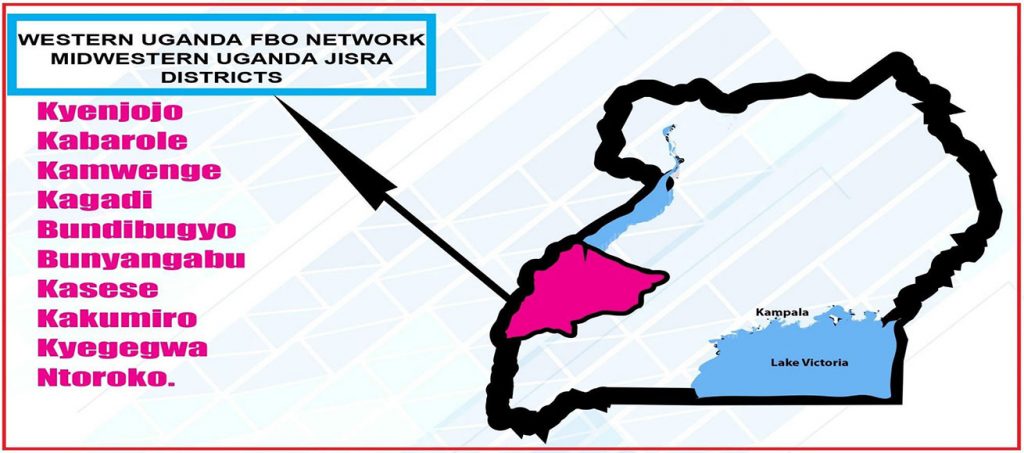
These Activities per pathway includes;
Intra – religious pathway
- Facilitating intra-faith dialogues between religious leaders to discuss gender issues with the district community development officers, Chief administrative officers, religious leader, cultural leaders, minority religious representatives.
- Conducting interfaith dialogues between religious leaders and engaging district Interfaith committees to participate in various district dialogues
- Conducting workshops for Community legal advisors
- Conducting dialogue forums on young leaders in faith institutions for improved understanding of gender issues facilitated by women.
- Conducting education and broader awareness campaigns on FoRB through faith community conversations, radio talk shows and written materials) in relation to GBV issues.
- Developing capacity building sessions for champions in CSOs, JLOS including Uganda Police, FBOs, the media, community members, Local government officials and solidarity groups to prevent and mitigate violence against minorities
- Advocating for emergency health care for SGBV VICTIMS and access to faith leaders
- Providing legal support for and SGBV victims
- capacity building for albinos /PWDs
- Capacity building for albino /PWDs associations or albino group leaders and Cultural and Faith leaders Champions to increase their empathy towards people living with albinism and disability.
- Conducting a study for people living with albinos and or disabilities on issues (analysis of issues affecting albinos’ community perceptions among others)
- Conduct engagement and coloration through high level dialogue between faith leaders and cultural leaders
- Conducting a media campaign to defend albinos´
Inter Religious Path Way
- Constructing committees and cooperation groups between faith leaders and cultural leaders
- Conducting study on the role, gaps and practices of African religions and modern mainstream faith
- Creating mediation and reconciliation groups
- Conducting a specific study on conflicts between faith groups over control of Land, natural resources and political discordance s in selected districts of Mid-Western Uganda region.
- Conducting sensitization dialogues with refugees through their leaders and faith structures with in the refugee settlements, # of faith leaders identified and trained, alliance building done by faith leaders on FoRB.
- Conduct 16 engagement meeting with leaders of the host communities and post conflict communities
- Strengthening peace building dialogue/programs between religious and traditional leaders on coping, mitigating and responding to conflicts (Peaceful co-existence)
- Disseminating information Education and Communication (IEC) materials on peaceful and harmonious co-existence.
- Counseling and referrals for victims of SGBV
- Counselling, referral and legal support for victims of SGBV especially children, women, people with disabilities and SGBV VICTIMS
- Empowerment of SGBV VICTIMS (SGBV VICTIMS Solidarity groups) in post conflict locations suffering forms of SGBV.
Extra Religious Path Way
- Engage faith leaders at regional (or district) level to better understand the legislation and build their skills to understand NGO/FBOs registration, operation and compliance.
- Conduct dialogue between minority groups to empower them on their rights and freedoms of religion and beliefs.
- Support the participation of minority religions in various interfaith events, national& sub national forums.
- Ensure inclusions and participation of minority religious identities in the national and sub national developments by giving technical support to the establishment of the forum
- Establish regular platforms for engagement between faith leaders and security/administrative officials.

